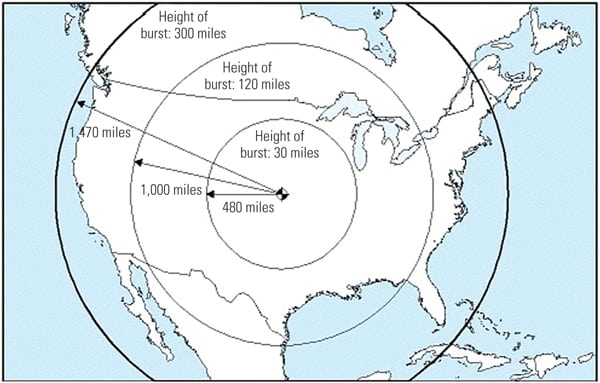
Electromagnetic Pulse
Effects of Nuclear Weapons. Electromagnetic pulse (EMP) is an electromagnetic wave similar to radio waves, which results from secondary reactions occurring when the nuclear gamma radiation is absorbed in the air or ground. It differs from the usual radio waves in two important ways. First, it creates much higher electric field strengths. Whereas a radio signal might produce a thousandth of a volt or less in a receiving antenna, an EMP pulse might produce thousands of volts. Secondly, it is a single pulse of energy that disappears completely in a small fraction of a second. In this sense, it is rather similar to the electrical signal from lightning, but the rise in voltage is typically a hundred times faster. This means that most equipment designed to protect electrical facilities from lightning works too slowly to be effective against EMP.
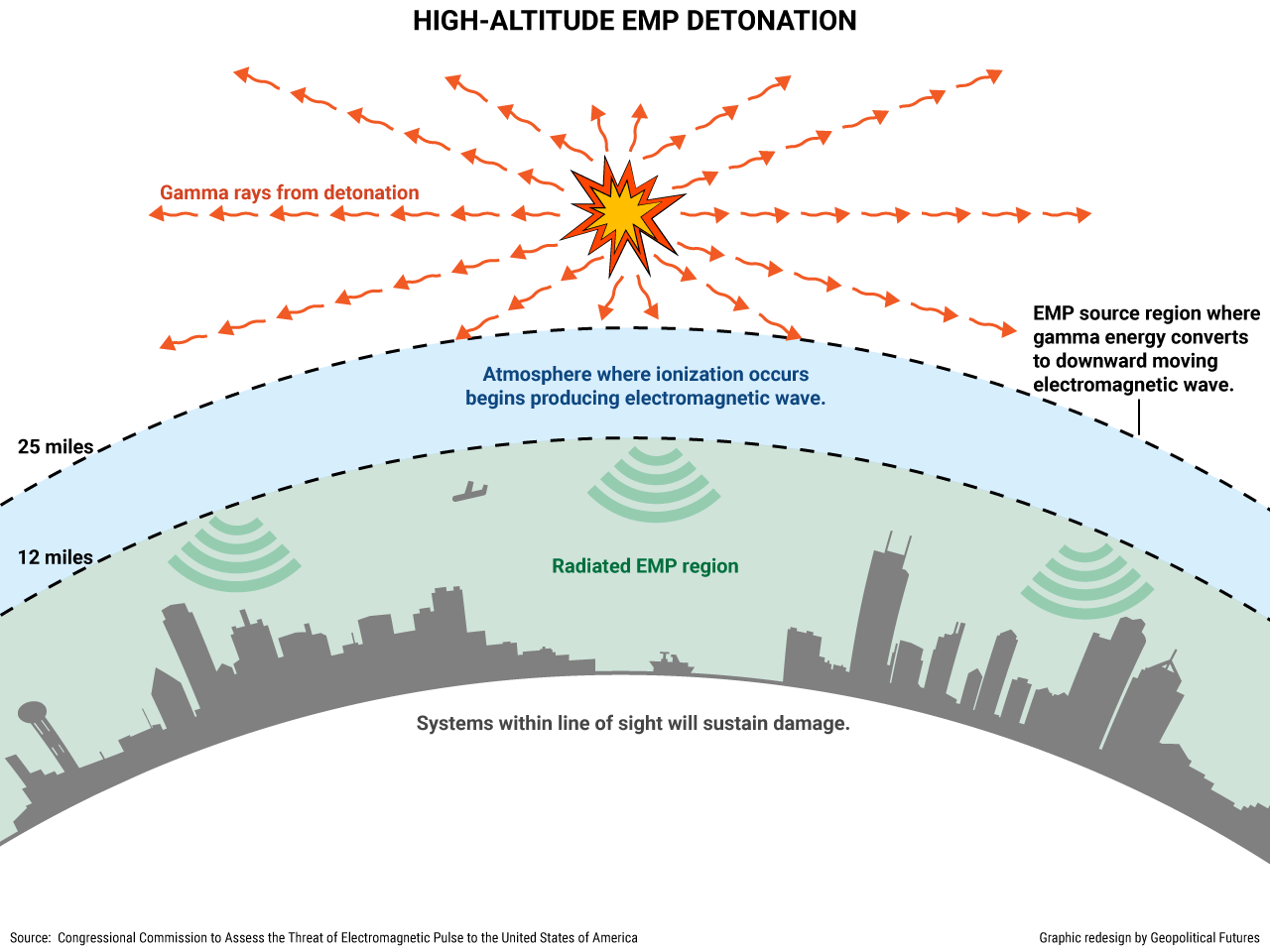
The EMP Threat: How It Works and What It Means for the Korean Crisis - Geopolitical Futures

Electromagnetic Pulse - EMP, Types of Electromagnetic Pulse, Energy

Electromagnetic Pulse: Weapon of Today - Pakistan House

EMP: Electromagnetic Pulse (Prepping for Tomorrow Book 1), Akart, Bobby, eBook
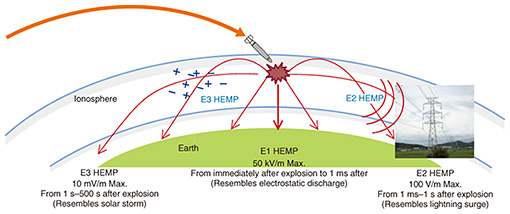
Investigating Countermeasures against High-altitude Electromagnetic Pulse (HEMP)

Study probes risks to power plants from electromagnetic pulse
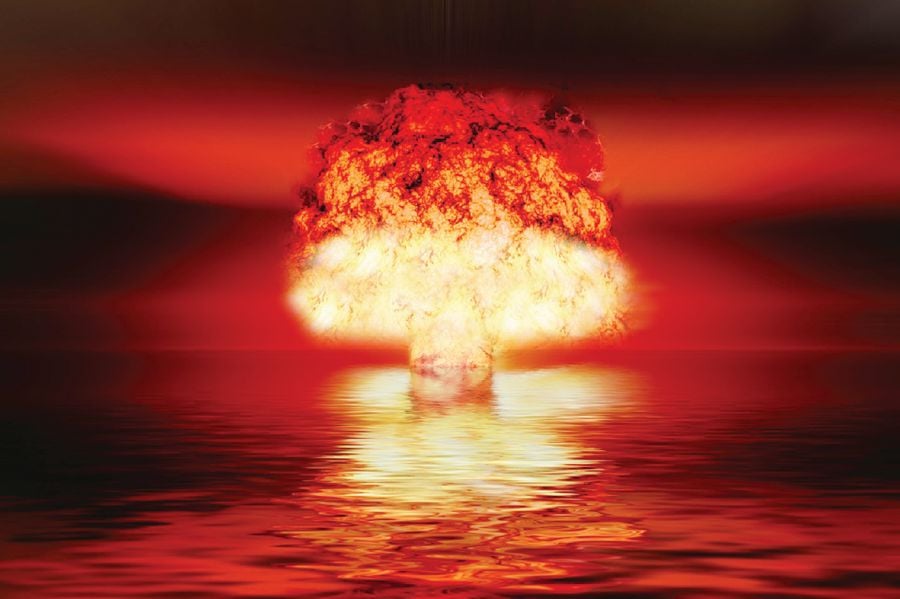
Nuke electromagnetic pulse attack causes huge damage
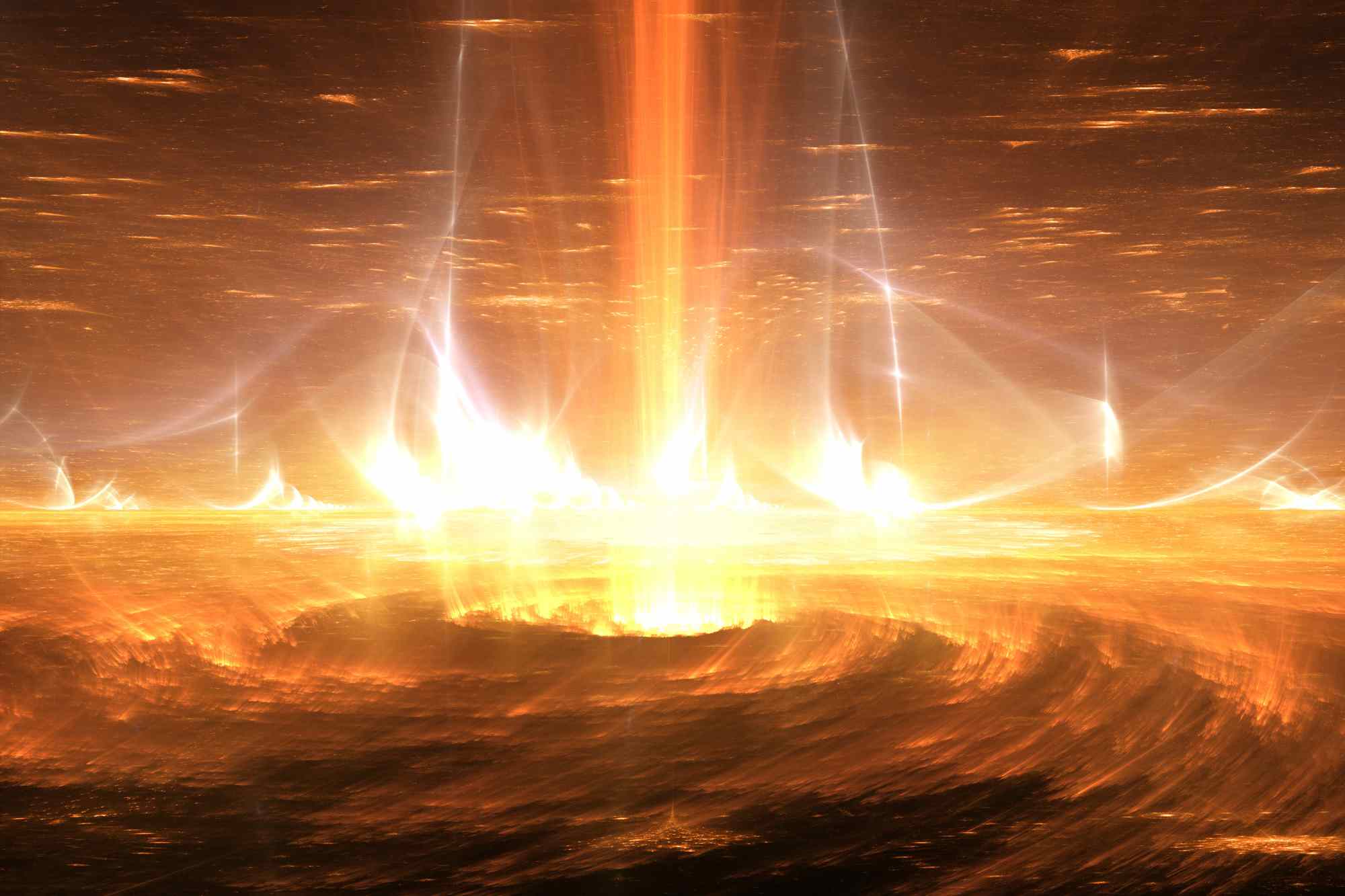
Fearing Chinese Electromagnetic Pulse (EMP) Attacks, Japan Plans

Putin's nuclear threats may hint at an electromagnetic pulse strike

The intensity of a two-dimensional electromagnetic pulse I(x,z,t)=E 2
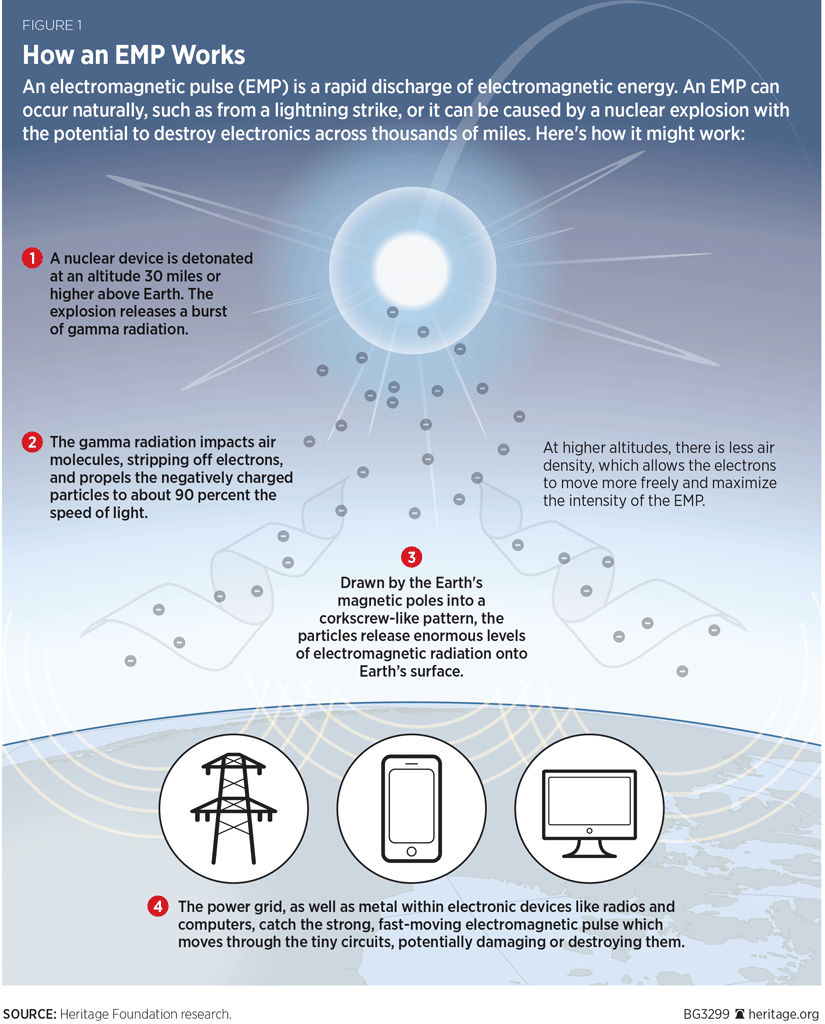
The Danger of EMP Requires Innovative and Strategic Action
